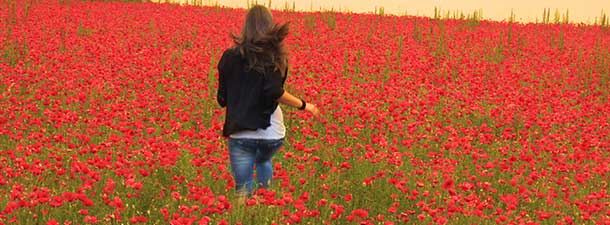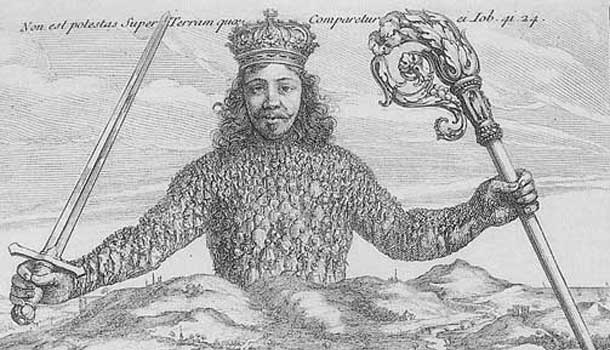Italian fashion protects itself
December 10, 2011
Food for Thought
February 1, 2012Jackboots Treading Softly: The Steady Rise of the European Far Right
It all seems so eerily familiar: populist unrest, growing economic instability, and, most disturbingly, the same rhetoric of division, violence, and hatred. Meet the new Right, same as the old Right. We mustn’t get fooled again.
Call them what you will – ultra-nationalists, neo-Fascists, neo-Nazis or simply right-wing extremists. Among them are populists, xenophobes and anti-immigration zealots, hyper-conservative Christians, homophobes, racists of every stripe, be they anti-Semites, anti-Roma or anti-Muslim, or all of the above. Alarmingly, the far right is gathering strength throughout the Europe. The phenomenon is mostly occurring legally, ironically enabled by the very democratic liberties and structures they so assiduously seek to eradicate. At the ballot box, elegantly dressed men and women who look little different from any other politicians, fare far better with voters when wearing well-tailored couture than attired in Nazi brown, Falangist blue or Squadristi black shirts.
The skinheads are still around, of course, and they have their purpose as rabble-rousing brawlers. But the Roman salutes, the pagan regalia of the Second World War and the disgraced former Axis battle flags expose them so predictably as rabid cavemen that it’s terrible for public relations. Britain’s violent English Defence League is one example of the new breed of virulent street thug, but it doesn’t garner votes as it is a movement rather than a political party, although the like-minded British National Party does now hold two MEP seats in Strasbourg. Yet the BNP’s often haltingly inarticulate pseudo-intellectual Nick Griffin is not exactly the model of the more sophisticated, polished, far-right politician. He is outclassed in effectiveness across the English Channel, where his far more refined continental counterparts speak eloquently and softly about unreasonable policies and intolerant ideologies in a way that makes them sound reasonable, sensible, even democratic, when they are anything but. Far-right parties were briefly on the defensive after the recent slaughter in Norway by unrepentant sociopath Anders Breivik, who claimed to have committed mass murder in defense of European civilisation against the Islamic horde, and had clearly identified himself with the extreme rightist parties girding themselves up for more power. Even the EDL was quick to repudiate him. But where reactionary parties have solidified their positions and hoped to improve their fortunes, their prospects have not dimmed at all.
Nowhere does the future look brighter for this regressive trend than in France. Ahead of this year’s legislative election, Marie Le Pen is a presidential candidate with some hope of winning the first round: according to recent polls her Front Nationale is set to win at least 22% of the vote. Jokingly referred to as “Le Pen Light” for being more accessible, less stern and more telegenic than her firebrand father Jean-Marie (still the elder statesman of the FN), Marie Le Pen is now the face of a more mainstream, upgraded Front. A sense of disillusionment with the status-quo political parties; a fear of Islamic extremism (which is better expressed as Islamophobia); hostility towards immigration; thinly disguised racism towards citizens of colour, especially those of African and Arab descent; a perception that traditional national values and identity are being corroded by multiculturalism and anger over the enduring economic crisis and the lacklustre performance of the EU – all these rally voters to the Front.
But if most European far-right parties find much of their rank and file amongst unemployed males, often in rural population bases and increasingly under the age of thirty, in France, the sheer numbers turning to the FN reveals the Front as a party that resonates with a broad cross-section of French society, not just the disempowered working class and the jobless. Over the span of the last twenty years, the endurance and presence of the Front on the national scene have legitimised it as a viable political choice for French voters. It is, like it or not, becoming a mainstream phenomenon, despite its Neo-Fascist ideology.
This evolving reality is also mirrored elsewhere on the continent. The grievances held in common by pan-European voters are being ably harnessed by the extremist parties that cater to voters’ anger and hatred. This broad shift to the right is changing the face of European politics. The same toxic gospel of xenophobia, racial purity, nationalism, law and order and economic scapegoating preached by the Front Nationale, has taken strong root in home-grown varieties in Northern Europe. The Freedom Party of Austria commands some 27% of all voters. In the Netherlands, the Freedom Party led by Gert Wilders holds 24 out of the 150 seats in the lower house of Parliament and is an important block in the coalition government. In traditionally liberal Scandinavia, the True Finns party with over 17% of the voting block is now an opposition power to reckon with, while the Danish People’s Party, however, has thankfully just lost its grip on power, down to 22 of 179 legislative seats at the recent election, where a centre-left minority coalition is now in government.
Italy, of course, by its sheer eccentricity is always a case apart. While Umberto Bossi’s Northern League comfortably holds nearly 13% of the voting power, Italy’s ever chaotic politics and splintered Congress do not seem quite ready to fully revisit its Fascist past. It’s simply too divided and disorganised. And though Spain’s Centre Right government is decidedly staunchly conservative and the ruling People’s Party finds its origins in Francisco Franco’s legacy, it cannot be considered far-right. Germany’s brazenly Neo-Nazi, National Democratic party has made gains in impoverished rural areas like the state of Mecklenburg-Western Pomerania, but it is clear the vast majority of Germans repudiate anything that smells like Nazism.
The strangest case is that of Switzerland, where the Swiss People’s Party, the SVP, forms a strong third of the electorate and quite simply dominates national politics. Home to so many international forums, neutral and peace-loving, long a champion of human rights and humanitarian principles, nowehere in Europe is anti-immigrant racism or Islamophobia more legalistically entrenched and codified. If we turn further east and include Russia and Belarus as part of this disturbing reality, we must acknowledge a fait accompli. Alexander Lukashenko’s brutal dictatorship is the last old-fashioned, arguably both Fascist and Stalinist, authoritarian state left in Europe. And for all that post-Soviet Russia is described as a nascent democracy, in practice, we must acknowledge that it remains a police state, dominated by former members of the security services. There is little to no freedom of expression, human rights are routinely and egregiously violated, and Vladimir Putin looks set to return to the stage to amend the Russian constitution and instal himself as dictator.
We would do well to remember that, in 1933, Germany’s National Socialists rose to power in a democratic election and then promptly abrogated the democratic safeguards that had allowed their victory, to establish the most barbarous dictatorship Europe and the world have ever known. If there is not a new Third Reich on Europe’s horizon, the flames of rekindled ultra-right extremism are nonetheless slowly burning away the foundations of the pluralistic, inclusive democracy European civilisation is meant to uphold. The true enemy within is the thinly-disguised Neo-Fascism amongst us, spin-doctored and made more palatable, donning a new, less outwardly authoritarian and militaristic guise. But peel away the respectable veneer of the modern, mainstream Fascist and you will recognise the ghosts of the past reincarnated in new clothing, the same in intent, if not yet in deed. We dare not ignore them. It’s not a comic opera beer hall putsch put down by policemen. It is a loaded pistol pointed at the very heart of everything that makes us free. Hitler, Mussolini, Vichy, Franco, Salazar, Pavelic, Quisling – once was quite enough.




